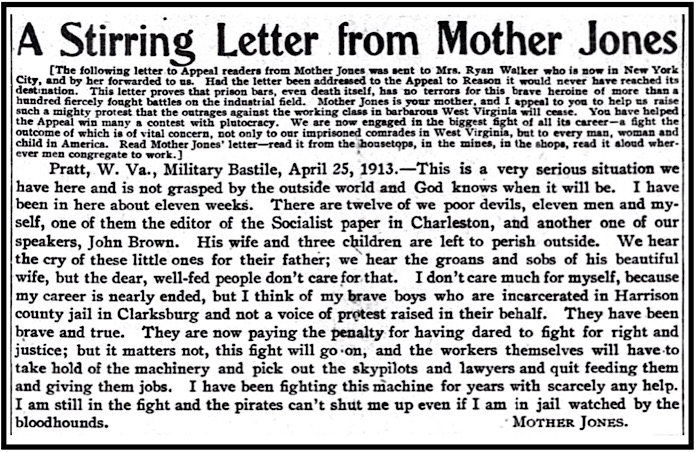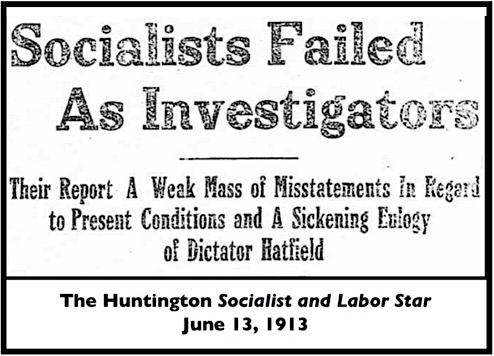 —————
—————
Hellraisers Journal – Tuesday August 12, 1913
Comrade Thompson Responds to Debs Regarding Socialists’ Report on West Virginia
From the International Socialist Review of August 1913:
A Reply to Debs
[-by W. H. Thompson
Editor of Huntington Socialist and Labor Star]
Editor of the Call:
In your issue of June 28 appears an article by Comrade Eugene V. Debs, headed “Debs Denounces Vilifiers of West Virginia Committee Report.” As one of the parties referred to as “vilifiers,” I would like to answer a few of the points made in the article.
The Socialist and Labor Star bitterly condemned the committee’s report; it did not publish it, but it did give an explanation for suppressing it, in the following words: “We have never, and will never, devote any of our space to whitewashing a cheap political tool of the capitalist class, not even when the whitewash is mixed by a committee representing our own party.”
From Comrade Debs’ own words I will endeavor to prove that our condemnation of the report was justified. Our charges against the report were that it was a “weak mass of misstatements and a sickening eulogy of Dictator Hatfield.” The truth of the last clause of the charge is plainly apparent to everyone who has read the report. The truth of the first clause is well known to all who have taken the trouble to inform themselves regarding the trouble in this state.
Comrade Debs says that when the committee arrived in West Virginia more than sixty of our comrades were in jail and two of our papers were suppressed. All true. Now pay particular attention to dates. The committee arrived in West Virginia on May 17. Hatfield was inaugurated governor on March 4, something over two months previous. These comrades had been held in-or put in-jail at Hatfield’s orders, and the papers had been suppressed at his command. Mother Jones, Editor Boswell, National Committeeman Brown, and forty-six other Socialists were placed on trial before a military drumhead court-martial on March 7. On March 9, the Circuit Court of Kanawha County issued a writ forbidding the trial of these prisoners by the militia. The sheriff went into the military zone to serve this writ, only to be met by the Provost Marshal, who, acting under orders from Hatfield, forcibly prevented the serving of the papers, and the drumhead trial proceeded in defiance of the civil courts.
The report of our committee says: “It was under the administration of Glasscock, and not Hatfield, that Mother Jones, C. H. Boswell and John Brown were court-martialed and convicted.”
On April 25, the Charleston Labor Argus was confiscated, suppressed, and those suspected of being connected with it were thrown into jail. On May 9 the Socialist and Labor Star was confiscated, its plant destroyed and five of its owners jailed by order of Governor Hatfield.
Our committee’s report referring to these outrages says: “In this connection it, is but fair to say that the governor and his friends disavow knowledge of these outrages!”
According to Comrade Debs’ article, it did not take him long to discover “that a certain element was hostile to the United Mine Workers.” Apparently, however, he failed to discover that there were numerous elements hostile to Socialism. There was an element hostile to the United Mine Workers’ officials who had just leagued themselves with Hatfield and agreed upon a “settlement” of the strike, which was odious to the strikers and which they have since totally repudiated. Comrade Debs uses this “element” that was hostile to the United Mine Workers as a shield to hide behind when we attack him for whitewashing Hatfield. Then he pours out this vial of wrath upon us:
The whole trouble is that some Chicago I. W. W .-ites, in spirit, at least, are seeking to disrupt and drive out the United Mine Workers to make room for the I. W. W . and its program of sabotage.
Speaking for myself, I will say that I have never seen a real live I. W. W.-ite. If there is or has ever been such an animal in West Virginia I am blissfully unaware of the fact. However, I have heard considerable of this new species from the capitalistic press and I note that the capitalists are very hostile toward it. I consider that a good recommendation for a labor organization and will certainly not speak slightingly of it or condemn it as long as the parasites fear it, but as for the I. W. W. being responsible for the attack on the Mine Workers’ officials, who deliberately attempted to betray the Kanawha strikers, I think Comrade Debs’ fear was father to the thought.
Then Debs dramatically points to Mother Jones and John Brown as evidence that the Mine Workers’ officials are straightforward and honest, or these two class-conscious comrades would not work for them. And I come right back with the assertion that both Mother Jones and Brown have worked, not for these officials whom he so vigorously defends, but for the rank and file of the workers.

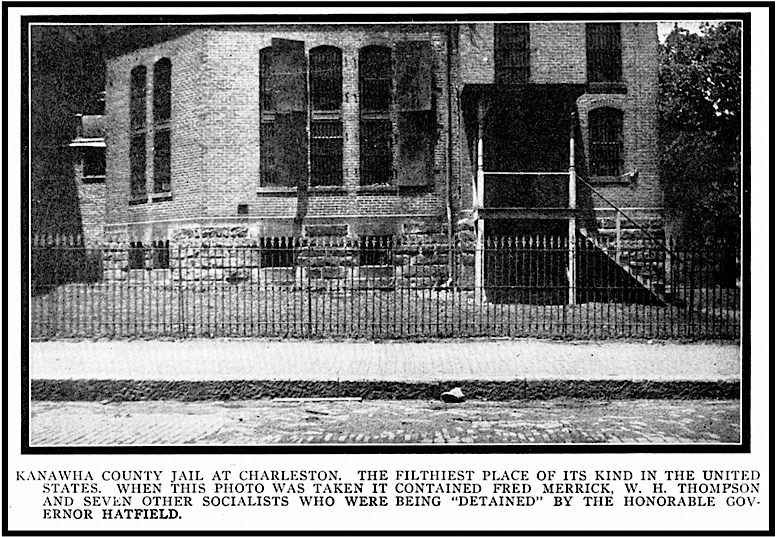

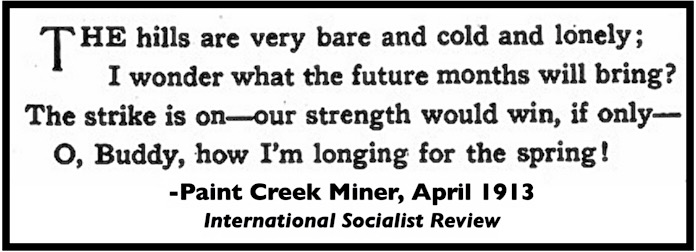 ————–
————–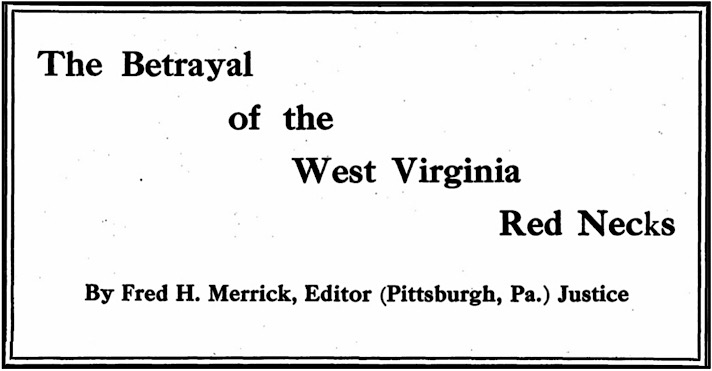
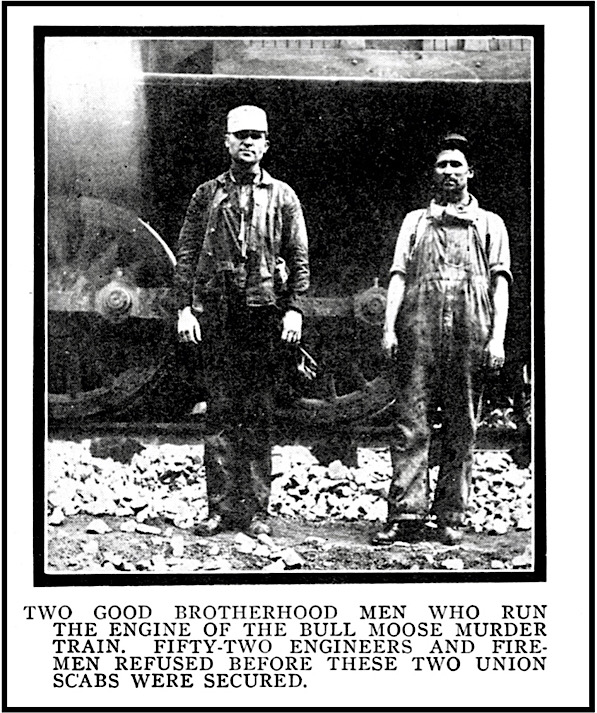
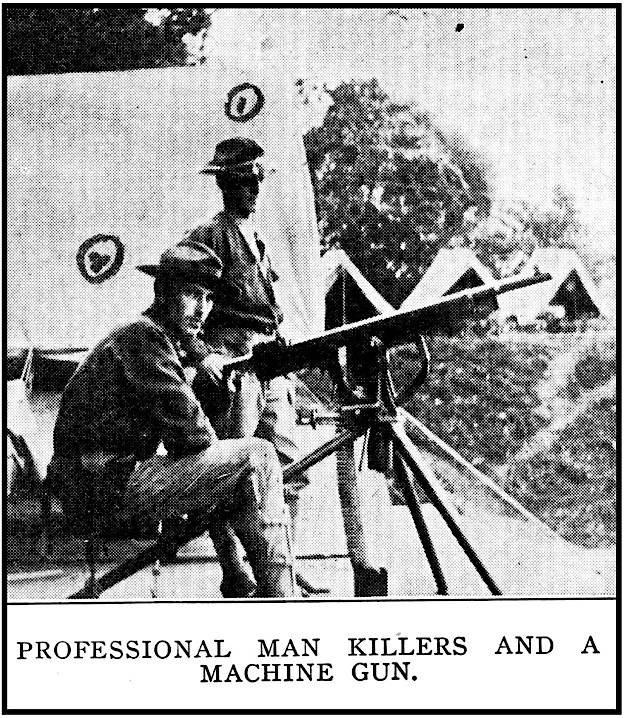
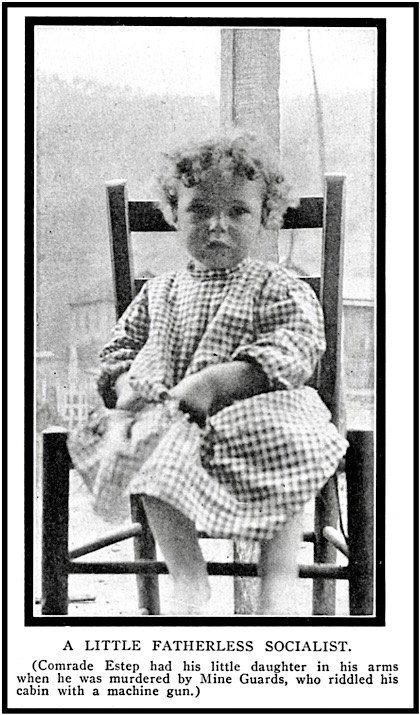
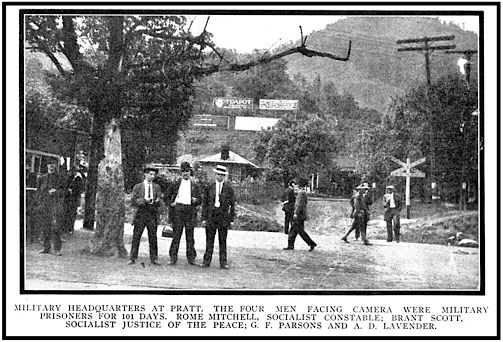
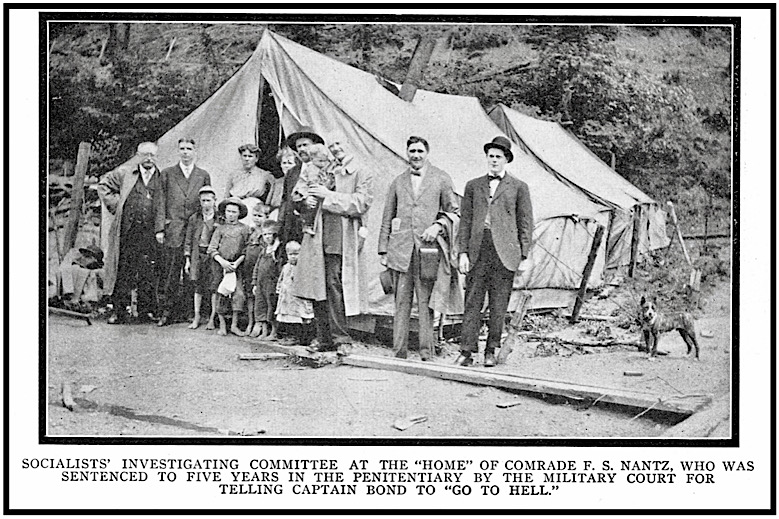
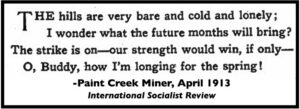 —————
—————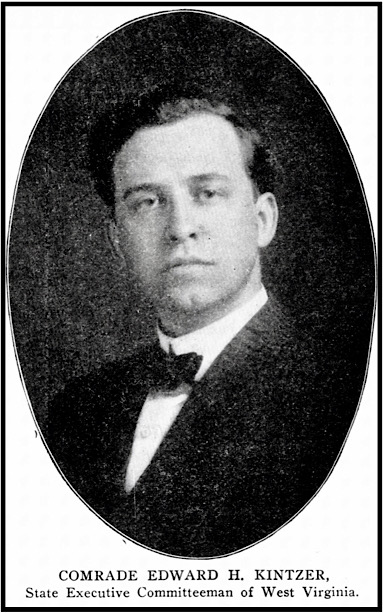
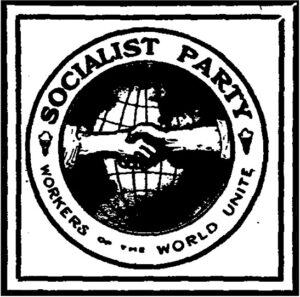
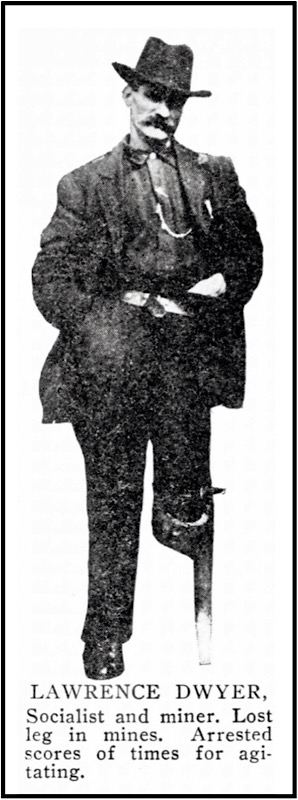
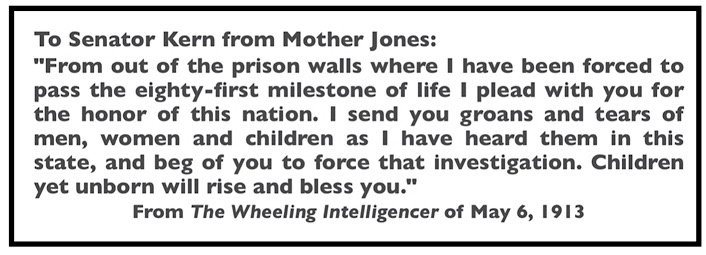 —————
—————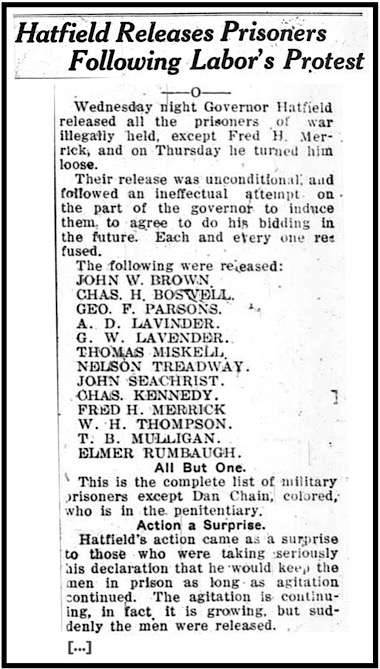
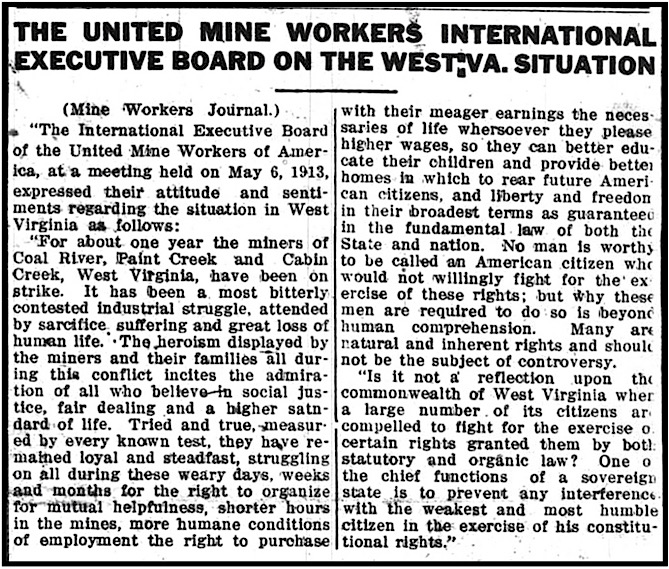
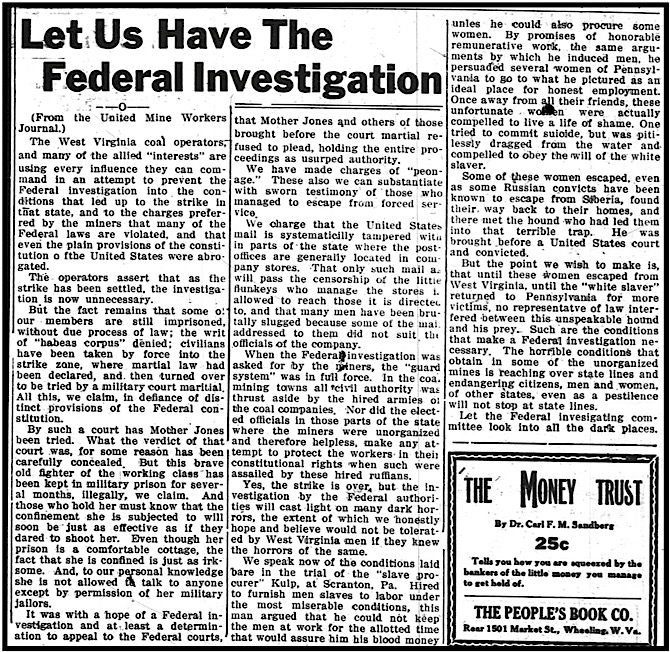
 —————
—————
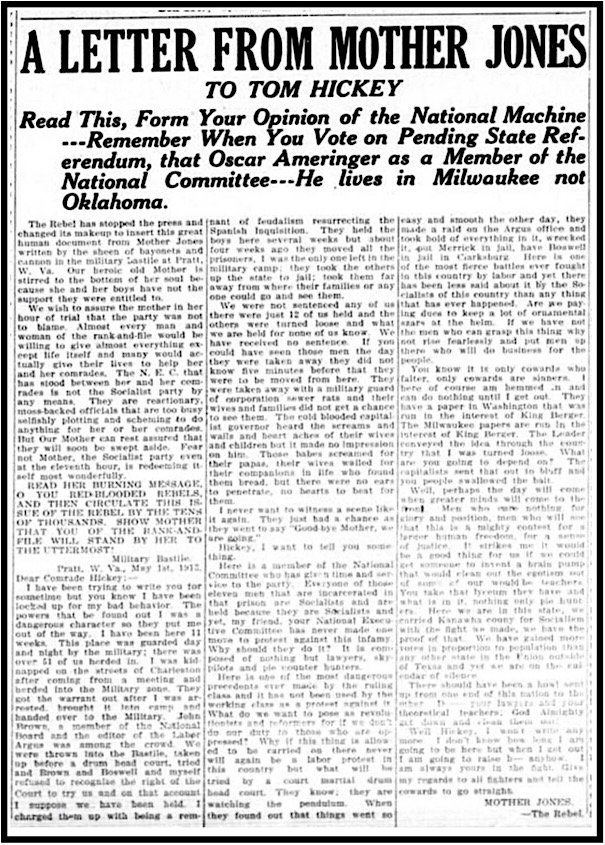
 —————
—————